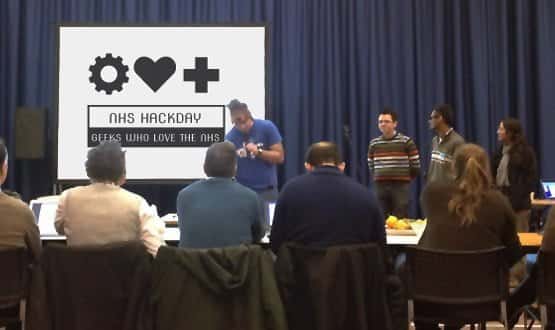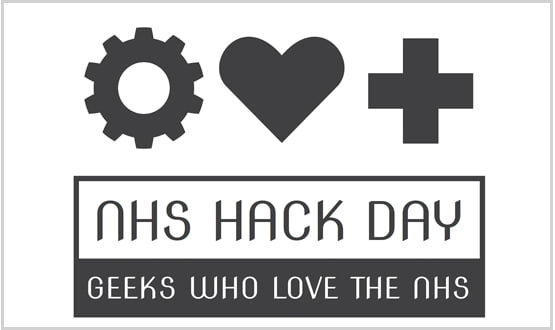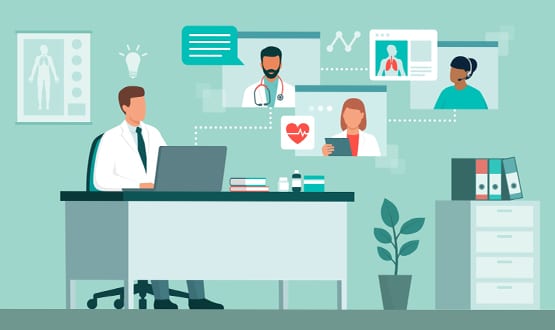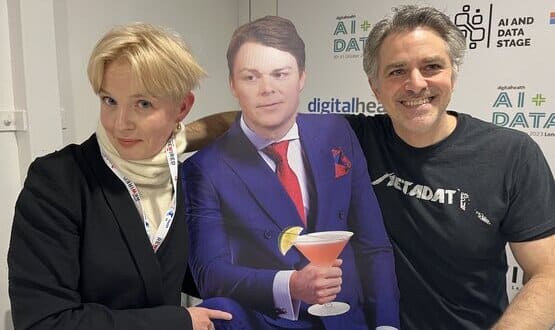Coding sub-zero
- 29 January 2013

The latest NHS Hack Day took place in a frosty gym at the John Radcliffe Hospital in Oxford.
Around 150 clinicians, designers and developers spent their weekend creating “disruptive solutions to problems in the health space.” And despite the chilly atmosphere – and lack of a reliable internet connection – spirits were high.
Submissions to the final judging varied from an online portfolio for junior doctors to video consultations and a memory repository for dementia patients.
Organiser Dr Carl Reynolds said events like this were important because they brought people with ideas together.
“Hack days build communities and create useful stuff for the NHS,” he said. “The NHS moves relatively slowly when it comes to IT, so it’s about creating things doctors want and showing the NHS that it’s viable to do it.”
Open for ideas
This can-do attitude can be refreshing. When health secretary Jeremy Hunt announced that he wants the NHS to become the “most digital health service in the world” by 2018, his vision was widely dismissed as unachievable.
The managing director of the Advisory Board Company, Jonathan Edwards, described Hunt’s speech to the Policy Exchange think-tank as a “statement of platitudes with no money, power, incentives or guidance.”
It’s true that Hunt’s aim of getting electronic records and communications in use across health and social care within five years lacks detail, a roadmap, or funding beyond a rather vague report from PriceWaterHouseCoopers that the NHS could save £4.4 billion by making more use of technology.
But NHS Hack Day and similar projects, such as the Digital Doctor Conference – which teaches doctors how to code – and OpenGPSoc – a scheme to develop an open source GP clinical system – show it’s not impossible to create some simpler solutions faster, and without spending a lot of money.
The key, Dr Reynolds believes, is using open source code and other ‘open’ ideas. “We promote open source software because it allows people to collaborate and make very useful things with higher quality,” he told eHealth Insider in Oxford.
The winner of the NHS Hack Day, which the judges said “captured the spirit of working together”, reflected these ideas.
The open source electronic medical record for cardiology, called OpenHeart, is an extension of OpenEyes, an electronic patient record project already live at Moorfields Eye Hospital in London.
Fuelled by coffee
The winner emerged after some frenetic activity from the attendees, who needed to keep moving to keep themselves warm. Those attending the NHS Hack Day were challenged to create a useful app in 24 hours, and present it to a panel of judges.
As the weekend came to an end, coders were frantically typing away on their laptops with their eyes firmly glued to the screen. Others were consuming ridiculous amounts of coffee, scribbling down notes for their three-minute presentation.
Rory Wilding from the the Alacrity Foundation graduate programme in Wales, which teaches graduates how to build successful technology companies, said the atmosphere was amazing.
“I found it online and signed up. It’s so cool being here. It’s really interesting just to chat to people and share ideas. It’s a great place to network as well.”
Wilding said he had previously been to an earlier NHS Hack Day in Liverpool and, although he didn’t understand much coding, chatting to people about their ideas made him keen to learn more.
“I understand a lot more about how it works this time around. I’m really enthusiastic about this; there are so many good opportunities.”
He joined the team led by Rob Dyke from Tactix4 in creating a video consultation booking system. The system enables browser-based consultations using BigBlueButton, an open source web-conferencing system.
A patient can book an appointment online from a list of slots published by their GP practice and the practice can accept or decline that appointment. The clinician then holds the consultation.
“We’d like to be able to link it to the patient records,” said Dyke, adding that the video consultation could be recorded so that the patient or doctor could view it later. The consultation also allows the sharing of documents such as scans and test results.
NHS ‘not innovative enough’
The NHS Hack Days, which have also been held in London and Liverpool, have generated some traction with the NHS Commissioning Board, which will have a big role to play in commissioning IT standards, systems, and information services once it starts work in April.
In Oxford, the NHS CB’s chief data officer, Dr Geraint Lewis, appeared as one of ten judges on the panel and the NHS CB contributed £3,000 towards the event.
But Saeed Omer, a locum biomedical scientist and a first time NHS Hack Day attendee, said the NHS had a long way to go before “you could call it supportive of technology.”
“The NHS isn’t innovative enough for me. There are lots of technology-minded people in the NHS, but the management just isn’t,” he said. “There are too many policies that prevent people from doing good stuff.”
Omer was, however, very impressed with the achievements made over the weekend. “I’ve found my home,” he told EHI.
His project – ‘What’s in my fridge?’ – is a web-based tool that allows laboratories to track what they have in their fridges, so that if a lab has a product that has not been used and won’t be used, another lab can use it before it expires.
Omer explained that NHS labs often order a large quantity of reagents that they don’t need; but which a near-by lab might be able to make good use of. The tool would put the labs in touch with each other.
“You also get notifications via email when the products are coming to their expiry date,” he said. “It could save the NHS a lot of money.”
More hacking to come
The next NHS Hack Day has already been planned and will take place in Cambridge some time during the coming months.
“It’s important to get the projects on the market. The aim is to actually use these projects to improve the NHS,” Dr Reynolds said.




